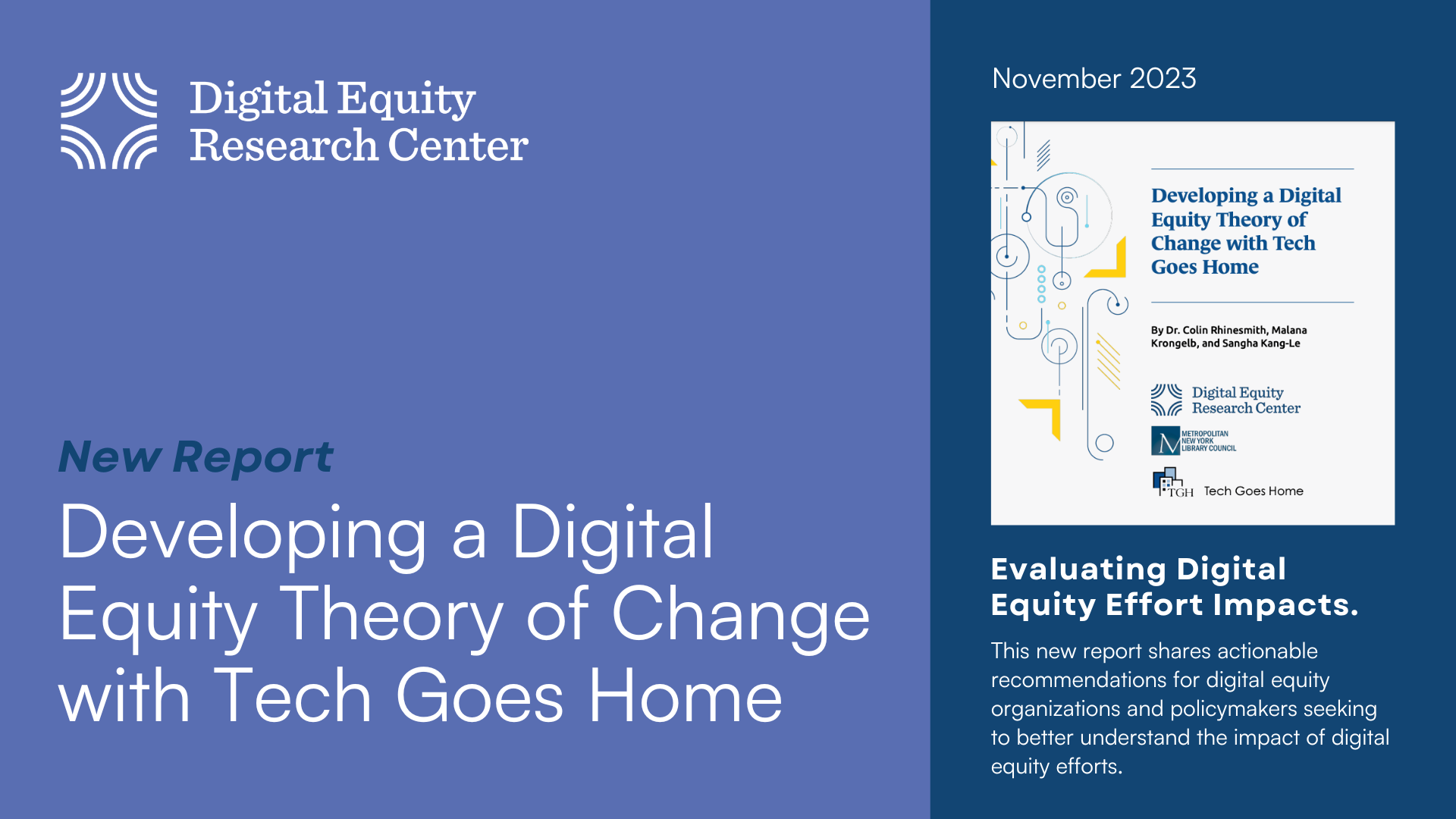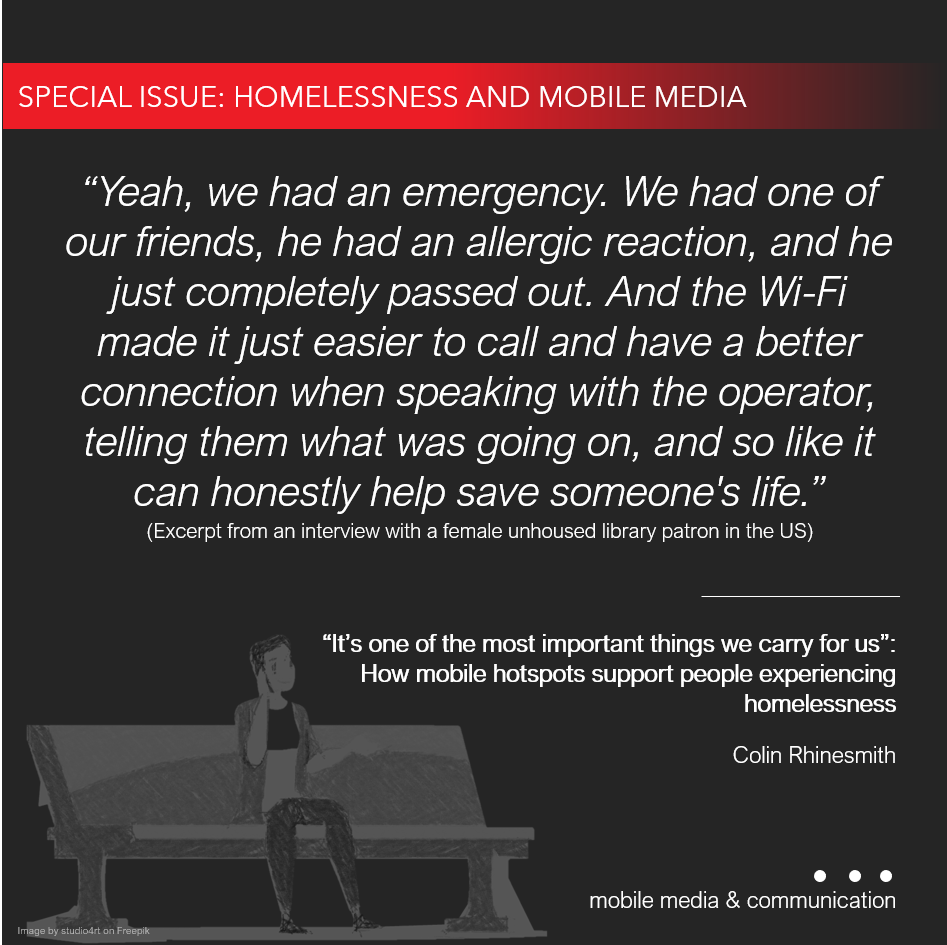Over the past year, my team and I at the Digital Equity Research Center at METRO co-led a participatory action research project with Tech Goes Home (TGH). The purpose of the study was to develop a theory of change for TGH, as well as an analysis of the challenges and opportunities facing community-based organizations in conducting equity-focused program evaluations as part of their their digital equity work.
We hope the findings from our study will help to inform state and federal policymakers as the NTIA’s Internet for All grant funding rolls out over the next five years.
The Benton Institute for Broadband & Society published this summary that I co-wrote with Sangha Kang-Le (TGH) and Malana Krongelb (DERC). The article includes the following recommendations based on the findings from our participatory action research project.
For digital equity organizations, key recommendations include:
- Allocating time, money, and intentional effort to capture insights and expertise from community members;
- Engaging evaluation participants in their native languages; and,
- Working with funders to balance reporting requirements with participants’ privacy and self-defined measures of success.
Policymakers play a critical role in supporting this work and should prioritize:
- Set aside funding that organizations can use to conduct evaluation;
- Technical assistance on effective program evaluation; and,
- Allowing government funding to be used to compensate community members for their expertise.
(Image above by Becca Quon originally published on the Digital Equity Research Center website)

